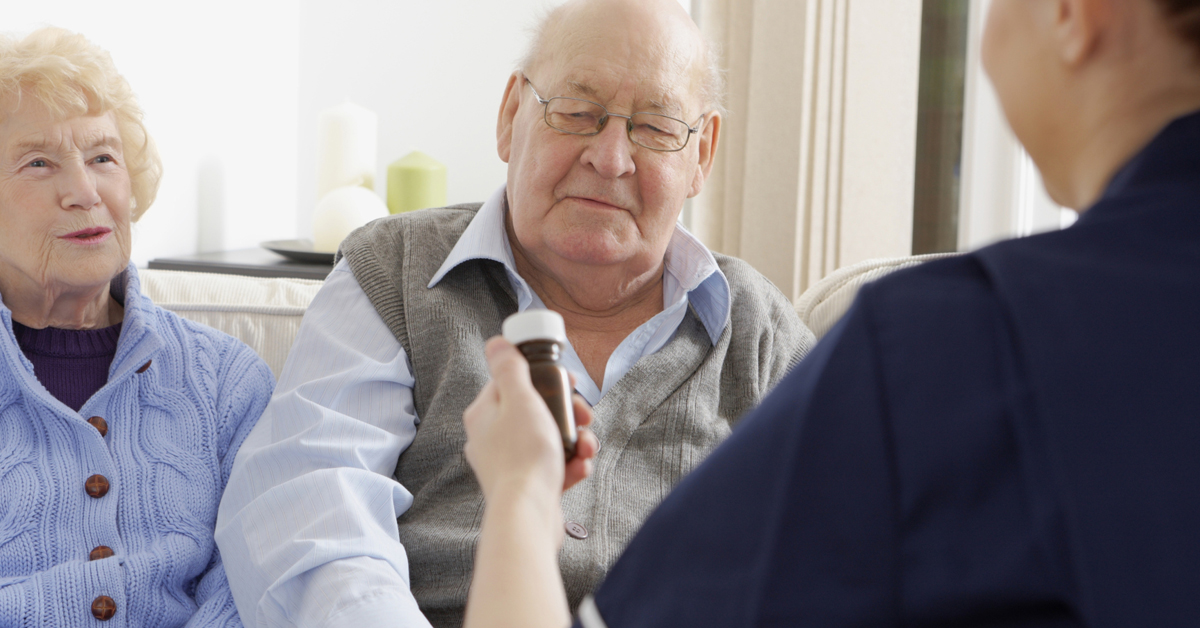
Fast Home Health Improves Patient Safety
For each Medicare-certified home health agency, families can use Medicare’s Care Compare to see what percentage of patients are seen within 0-2 days of referral. How important is this? A recent study out of Rutgers, the Keck School of Medicine, and Thomas Jefferson University shows that programs can vary widely in responsiveness to referrals. Also, that the speed of response plays a major role in patient safety.1 However, there may be another story underneath that data.
How Important is Prompt Start of Care in Home Health?
In the current study, Jamie Smith and colleagues analyzed the data of 209,000 Medicare beneficiaries hospitalized for a diabetes-related condition and then referred to home health at hospital discharge. They found that patients with late starts of care (8-14 days after discharge) experienced 110% more rehospitalizations (more than double). Rehospitalization rate simply means the percentage of people who were discharged from the hospital but had to return for unplanned care. A higher rate suggests lower quality of care and less patient protection.
How Quickly do Home Health Agencies Respond to Referrals?
In their sample, less than six out of ten home health referrals received a prompt start of care (0-2 days). Nearly three out of ten patients received a start of care more than seven days after the home health referral it at all. On the other hand, Medicare’s Care Compare routinely shows that more than nine out of ten home health patients receive a start of care within two days of the referral.
Exploring Discrepancies in Rates of Prompt Starts of Care
The study authors did not comment on the source of this discrepancy. Jamie Smith and colleagues likely used a different starting point than Medicare’s Care Compare. Whereas Smith et al. used hospital referral to home health as the starting point, it may be closer to the truth that Care Compare uses the home health agency’s acceptance of that referral as the starting point. If a home health agency cannot reach a patient or the patient refuses services, they do not admit that patient and that patient’s data does not go into Care Compare statistics. This would only explain part of the discrepancy, though. If one were to throw out all the data of patients who were referred to home health but did not receive it, 81% of the remaining patients received home health in 0-2 days (a prompt response). That is still appreciably lower than the numbers routinely reported by Medicare’s Care Compare.
What Families Need to Know About Home Health Response Times
Demand Prompt Service
Smith et al. explore the problem from the angle that slow starts of care are an institutional feature. This may only be part of the issue in this data, and a lesser part at that. To protect themselves from possible slow response, families need to know that they should receive a phone call within hours of the home health referral and have a visit scheduled and delivered in less than two days in most cases. Families can use Medicare’s Care Compare to check data on the responsiveness of the individual home health agency in question. Moreover, families should also know that if home health care is not prompt, they have the right to switch home health agencies.
Do Not Refuse Your Home Health Referral
In the data of Smith et al., 27% of hospital referrals to home health never resulted in a home health visit. This matches previous studies that tracked patients who refuse their home health referral. In studies published from 2015 to 2018, 25% to 33% of patients refused their home health referrals.2-4 It is possible, if not likely, that the large percentage of patients in Smith’s study not receiving home health refused their home health referral rather than being denied services as the current study seems to imply. This speaks less to an institutional problem within home health and perhaps more to a problem with the way doctors and discharge planners communicate the importance of home health. Patients who refuse home health prove 25% more likely to die than patients who accept their home health referral.2-4 When doctors or discharge planners recommend home health, it is important. Don’t refuse it. Families should make sure they have given good phone numbers that can be passed on to the home health agency. Answer calls from local, unknown numbers so nurses can call. Make sure your voicemail is set up and not full, so they can leave messages. Check your messages multiple times per day, at least until you get into a routine with the home health agency. Get the contact information of the home health agency. If you have not heard from them within six business hours of the referral, call the home health agency to make sure everything is on track.
References
- Smith JM, Jarrín OF, Lin H, Thomas-Hawkins C, Tsui J. Timing of Home Health Care Initiation and 30-Day Rehospitalizations among Medicare Beneficiaries with Diabetes by Race and Ethnicity. Preprints.org; 2021. DOI: 10.20944/preprints202102.0017.v1.
- Xiao R, Miller J, Zafirau W, et al. Impact of home health care on health care resource utilization following hospital discharge: a cohort study. The American Journal of Medicine. 2018; 131 (4): 395-407.
- Quality Insights. New Jersey Home Health Readmission Report. US Dept Health Human Services. 2016; Pub QI-C3-112015.
- Topaz M, Kang Y, Holland D, et al. Higher 30-day and 60-day readmission among patients who refuse post-acute care services. American Journal of Managed Care. 2015; 21 (5): 414-433.






